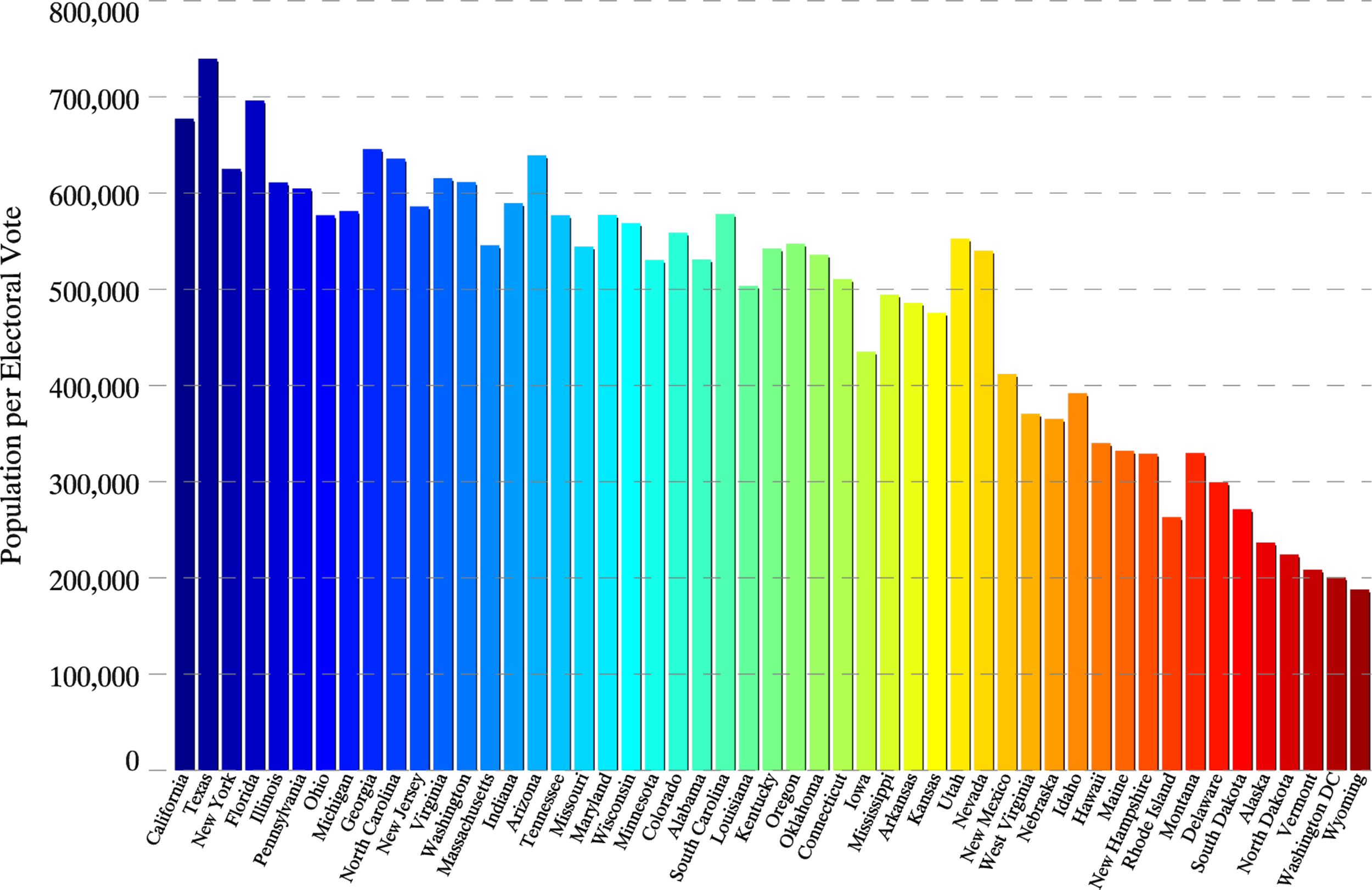Say you live in one of the Dakotas. You're a school teacher, you're a Native American, you run a small business, you work at a grocery store.
Because of the presidential selection system, your vote is never counted with similar people in other states. So you don't get to exercise the influence over the candidates' policy choices that you would if you could get your vote counted with other teachers, Sioux, businesspersons, retail workers, and so on across the country. The system divides the voters and conquers their preferences.
Maybe a politician tells you that your vote is worth more because you have more electors per capita than do the people in Texas or California. This is meaningless. Your vote is ignored by the candidates. They take for granted the outcome in the voting, so they pay you no attention, never visit your state, don't even learn your concerns. If you could join up with those in other states and have all your votes counted together you might make a difference but with this system you are ignored.
You can change this. If and when you have a chance, vote to have the winner of the national vote always be president. Then your vote for president will have meaning.




